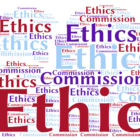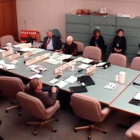2019 legislative session
Here comes the sun: NM lawmakers champion renewable energy
|
The large meeting hall at Santa Fe’s Temple Beth Shalom was packed, nearly every seat filled and with more people standing against the walls, listening to speakers at a clean energy conference late last month. When Sen. Mimi Stewart took the mic, she admitted she’d had to illegally park to get there. The first word new Gov. Michelle Lujan Grisham got in after the applause and whoops greeting her arrival was, “Wow.”
“There’s no reason New Mexico can’t be the clean energy leader in the United States,” she declared in the pep talk that followed, and promised to address issues from solar tax credits to increasing renewable energy requirements for utilities, along with a list of others. And to do them fast.









